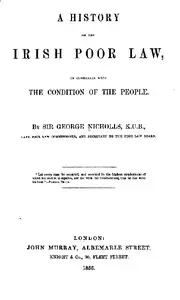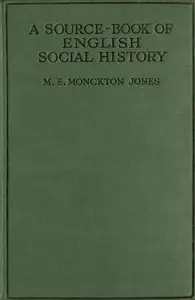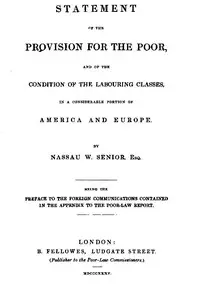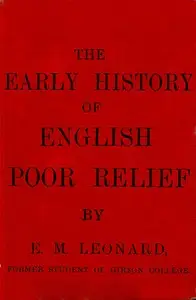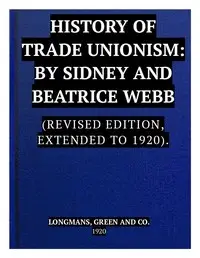"English Poor Law Policy" by Sidney Webb and Beatrice Webb is a detailed look at how England's system for helping the poor changed, especially after the big changes that started in 1834. This book explains the laws and rules that were made to take care of people who had nothing and it points out the important shifts and ideas that came up as time passed. The beginning of the book is a long introduction that sets the scene for understanding the English Poor Law system. The authors show why it's important to know the history of this policy to really understand how it works today. They promise to carefully break down the changes that happened from 1834 on, warning that it might be complicated but it's needed to see how the treatment of poor people, like those who could work, homeless people, and families, changed. The authors want to make sense of confusing legal documents, preparing for a step-by-step journey through the Poor Law's development.

English Poor Law Policy
By Sidney Webb
Uncover the transformation of a nation's approach to poverty through the ages, revealing a complex web of laws, reforms, and evolving societal attitudes towards its most vulnerable.
Summary
About the AuthorSidney James Webb, 1st Baron Passfield, was a British socialist, economist, supporter of Stalinism, and reformer, who co-founded the London School of Economics. He was an early member of the Fabian Society in 1884, joining, like George Bernard Shaw, three months after its inception. Along with his wife Beatrice Webb and with Annie Besant, Graham Wallas, Edward R. Pease, Hubert Bland and Sydney Olivier, Shaw and Webb turned the Fabian Society into the pre-eminent politico-intellectual society in Edwardian England. He wrote the original, pro-nationalisation Clause IV for the British Labour Party.
Sidney James Webb, 1st Baron Passfield, was a British socialist, economist, supporter of Stalinism, and reformer, who co-founded the London School of Economics. He was an early member of the Fabian Society in 1884, joining, like George Bernard Shaw, three months after its inception. Along with his wife Beatrice Webb and with Annie Besant, Graham Wallas, Edward R. Pease, Hubert Bland and Sydney Olivier, Shaw and Webb turned the Fabian Society into the pre-eminent politico-intellectual society in Edwardian England. He wrote the original, pro-nationalisation Clause IV for the British Labour Party.




